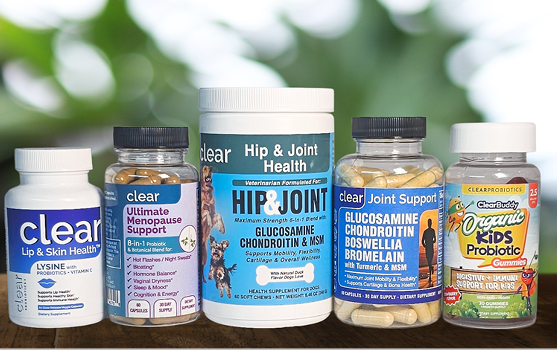What Nutritional Supplement is Recommended for Stress?
Stress is a common problem that can have both physical and mental effects, such as headaches, fatigue, and difficulty concentrating. Nutrition can help relieve stress by providing the body with specific nutrients that are known to be effective in reducing stress levels. What nutritional supplement is recommended for stress?
Natural vitamins such as Vitamin C, Vitamin B6, magnesium, Omega-3 fatty acids, and probiotics are food supplements that you can add to your diet to help reduce the symptoms of stress and improve overall health.
Let's dive deeper into what nutritional supplement is recommended for stress relief.
Table of Contents
What is Stress?
The term stress is used in so many different ways and can mean different things to different people.
For some, stress is a good thing. It can motivate us and help us get things done.
But for others, stress can be debilitating and can lead to all sorts of health problems.
So, what is stress?
Simply put, stress is our body's response to any demand placed on it. When we perceive a threat, our body kicks into "fight or flight" mode and releases a surge of hormones like adrenaline and cortisol. These hormones give us the extra energy and strength we need to deal with the threat.
However, if we're constantly under stress, our bodies never get a chance to recover and return to a state of rest and relaxation. This can lead to all sorts of health problems, both physical and mental. That's why it's so important to find ways to manage stress.
For some people, that may mean exercise, meditation, or journaling. But for others, a nutritional supplement may be recommended.
If you're struggling to cope with stress, talk to your doctor about whether a nutritional supplement might be right for you.
The Physical and Mental Effects of Stress
We all know that feeling of stress. Your heart races, your mind races, and you feel like you can't catch your breath.
Stress can be caused by a variety of things, both big and small.
The body's natural stress response is a normal, healthy reaction that has evolved over time to help us survive. However, the stress response was not designed to be constantly activated.
In today's fast-paced, constantly-connected world, we are bombarded with stressors on a daily basis. This chronic stress can take a toll on our physical and mental health.
Physical effects of stress include:
- Muscle tension
- Headaches
- Upset stomach
- Elevated blood pressure
- Chest pain
- Fatigue
- Insomnia
- Diminished sex drive
 (Source)
(Source)
Mental effects of stress include:
- Anxiety
- Irritability
- Restlessness
- Depression
- Memory problems
- Difficulty concentrating
- Poor decision-making
If you're feeling the effects of stress, there are some things you can do to help manage it. Exercise, relaxation techniques, and a healthy diet can all help reduce stress levels.
Additionally, a nutritional supplement is recommended for stress.
If you're looking for a natural way to reduce stress, consider trying a nutritional supplement. These products are designed to support the body's stress response and help you feel calm and relaxed.
How Can Nutrition Help Relieve Stress?
When it comes to managing stress, you may not immediately think of nutrition as a helpful tool. But what you eat (or don't eat) can actually have a big impact on your stress levels.
For example, eating a diet high in processed foods and refined sugars can worsen stress levels while eating plenty of nutrient-rich fruits and vegetables can help reduce stress.
Additionally, certain nutritional supplements may also help relieve stress.
What Nutritional Supplement is Recommended for Stress Relief?
It's no secret that stress can take a toll on our bodies, both mentally and physically. While there are many different ways to manage stress, one approach that is often overlooked is nutrition.
Certain nutrients have been shown to be particularly effective in reducing stress levels.
Here are some of the most effective nutrients for stress relief.
Probiotics
Probiotics can help control stress and improve your mood. This healthy gut bacteria also balances cortisol and serotonin for improved sleep and optimum mental health.
Magnesium
This mineral is known for its relaxing properties. It can help to reduce muscle tension and promote restful sleep.
B vitamins
B vitamins are essential for maintaining a healthy nervous system. They can help to reduce anxiety and promote calmness.
Omega-3 fatty acids
These healthy fats are known for their anti-inflammatory properties. They can help to reduce stress-related inflammation and promote overall health.
Ashwagandha
This herb is a popular Ayurvedic remedy for stress. It has been shown to reduce anxiety and promote relaxation.
Chamomile
This herb is well-known for its calming effects. It can help to ease anxiety and promote sleep.
There are many other nutrients that can help to reduce stress levels. However, these are some of the most effective.
If you are looking for ways to reduce stress, consider adding these nutrients to your diet.
Tips on Incorporating These Nutrients Into Your Diet
If you're looking for ways to incorporate more stress-busting nutrients into your diet, you're in luck.
Here are some tips to help you get started.
1. Make Sure You're Getting Enough Protein
Protein is essential for building and repairing muscles, so it can be helpful to include it in your diet if you're looking to reduce stress levels. Good sources of protein include lean meats, poultry, fish, beans, lentils, and tofu.
2. Incorporate Some Healthy Fats Into Your Diet
While it's important to limit your intake of saturated and trans fats, not all fats are bad for you. In fact, some healthy fats can actually help to reduce stress levels.
Good sources of healthy fats include avocados, olive oil, nuts, and seeds.
3. Eat Plenty of Fruits and Vegetables
Fruits and vegetables are packed with nutrients that can help your body to better cope with stress. Plus, they're a great source of fiber, which can help to keep you feeling fuller for longer and prevent cravings for unhealthy snacks.
4. Try to Include Some Fermented Foods in Your Diet
Fermented foods like yogurt, kimchi, and sauerkraut are rich in probiotics, which are beneficial bacteria that help to keep your gut healthy. A healthy gut has been linked with lower levels of stress and anxiety.
5. Stay Hydrated
Staying hydrated is vital for overall health, but it can also help to reduce stress levels. When you're feeling stressed, your body releases the hormone cortisol, which can make you feel thirsty.
Drinking enough water can help to counteract this effect.
6. Consider Taking a Supplement
If you're not getting enough of certain nutrients from your diet, you may want to consider taking a supplement. Some nutrients that have been linked with reducing stress levels include omega-3 fatty acids, magnesium, and vitamin C.
7. Get Enough Sleep
Sleep is crucial for your overall health, but it's also important for managing stress levels. When you're tired, your body releases more of the stress hormone cortisol, which can make you feel even more stressed.
Aim to get 7-8 hours of sleep each night.
8. Exercise Regularly
Exercise is a great way to reduce stress levels. It helps to release endorphins, which are hormones that can boost your mood.
Plus, it can help to improve your sleep quality, which can further reduce stress levels.
9. Take Some Time for Yourself
It's important to make time for things that make you happy and help you relax. Whether it's reading, taking a bath, or listening to music, find something that you enjoy and make sure to schedule some "me time" into your week.
10. Practice Some Stress-Relieving Techniques
There are some helpful stress-relieving techniques that you can practice, such as deep breathing, progressive muscle relaxation, and visualization.
FAQs About What Nutritional Supplement Is Recommended For Stress
What vitamins help to reduce stress?
The best vitamins for reducing stress may vary depending on the individual's specific situation and health condition.
However, some suggested vitamins for reducing stress include vitamin C, B-complex vitamins, and magnesium.
What is a natural supplement for stress and anxiety?
Some suggested nutritional supplements for stress relief include Omega-3 fatty acids, probiotics, and herbal teas such as chamomile or lavender.
What can I do to reduce stress?
- Stay active
- Meditate
- Laugh more
- Connect with others
- Try yoga
- Get enough sleep
- Keep a journal
Conclusion
What nutritional supplement is recommended for stress? The nutrients we have listed here have shown to be effective in reducing stress levels and improving overall health. Incorporating them into your diet through foods or supplements can help reduce the symptoms of stress and improve your quality of life.








